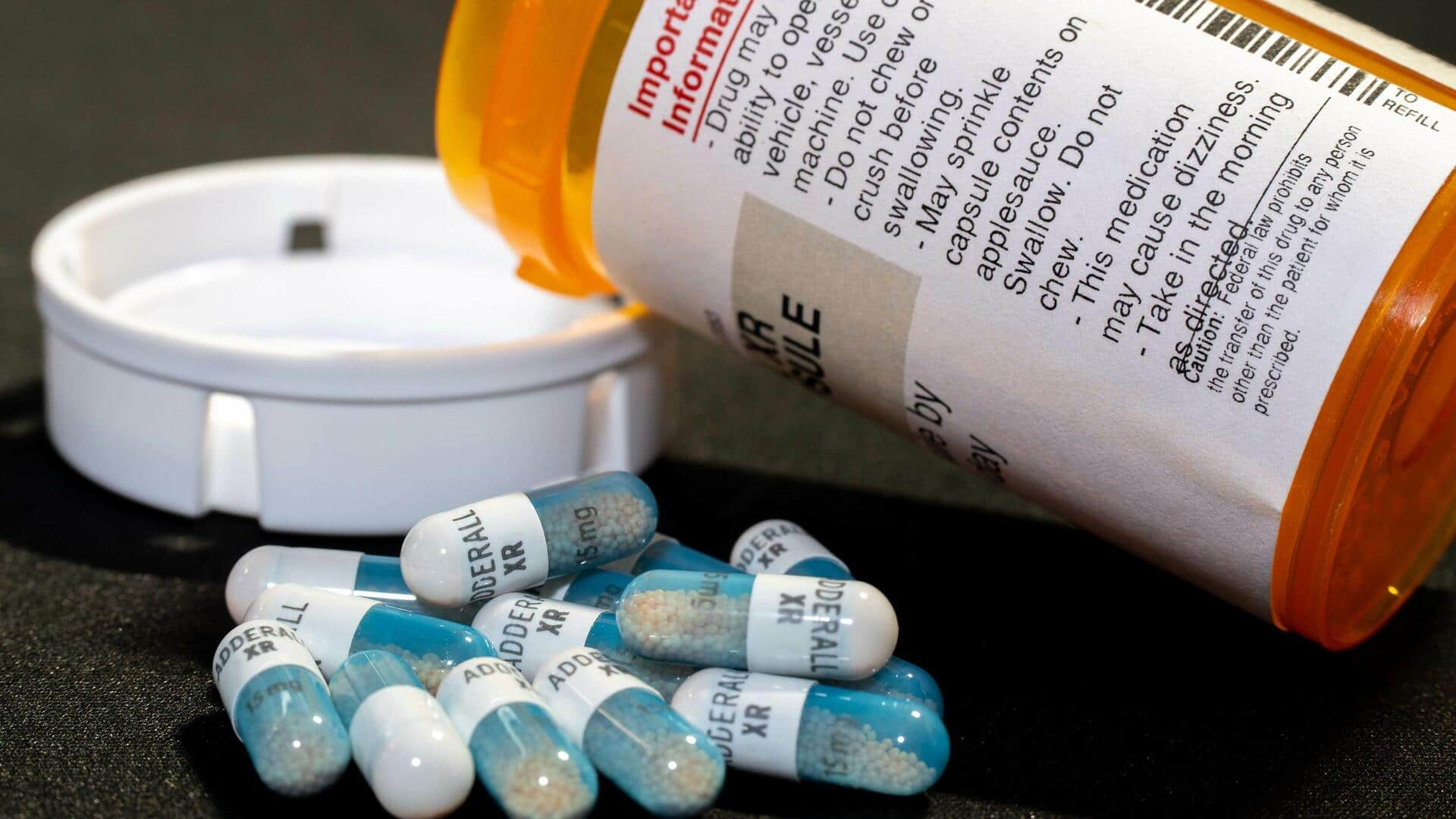
High doses of ADHD drug can cause psychosis, mania: Study
What's the story
A recent study led by psychiatrist Lauren Moran from Mass General Brigham in Boston, has revealed a significant risk associated with high doses of Adderall, a medication commonly used to treat attention deficit hyperactivity disorder (ADHD). The research indicates that individuals consuming high doses of this stimulant are over 5x more likely to develop psychosis or mania. This finding comes amid growing concerns about Adderall's side effects due to its substantial increase in US prescriptions over the past 20 years.
Overuse factors
Telemedicine and lack of dosing guidelines contribute to overuse
The surge in Adderall use among young adults since the COVID-19 pandemic, largely due to the rise of telemedicine providers, is a key factor contributing to these risks. The absence of upper dosing guidelines for Adderall is another significant concern. Moran's interest in this issue was piqued during her tenure at a hospital inpatient unit treating college students in the greater Boston area. She observed many patients without significant psychiatric history developing psychosis or mania after using prescription stimulants.
Research findings
Study reveals increased hospitalization risk due to Adderall
Moran's team analyzed the electronic health records of individuals aged 16-35 admitted at Mass General Brigham hospital between 2005-2019. They identified 1,374 individuals experiencing their first episode of psychosis or mania and compared them with a control group. The study found that those who had taken Adderall were nearly three times more likely to have been hospitalized with psychosis or mania than those who had not. This risk increased over fivefold at higher doses of 40mg and above.
Drug comparison
Adderall and Ritalin: A comparative risk analysis
The study also compared the risks associated with Adderall and Ritalin—another ADHD medication. However, no increased risk was found with Ritalin use. Moran suggested that this could be due to fundamental differences in how these two drugs function. Both medications increase dopamine levels in the brain, but while Adderall enhances dopamine release, Ritalin works by blocking its reabsorption. This distinction may explain the differing risk profiles of these two commonly prescribed ADHD treatments.
Dosing guidelines
Call for clear upper dose limits on labels
Moran emphasized the need for clear upper dose limits on Adderall labels. The current label suggests a treatment dosage of 20mg, but in practice, doctors' prescriptions vary widely. This inconsistency is partly due to severe ADHD symptoms that necessitate higher doses. However, Moran has also noted carelessness in dose prescribing and instances where patients may seek out a doctor willing to prescribe their desired dosage.